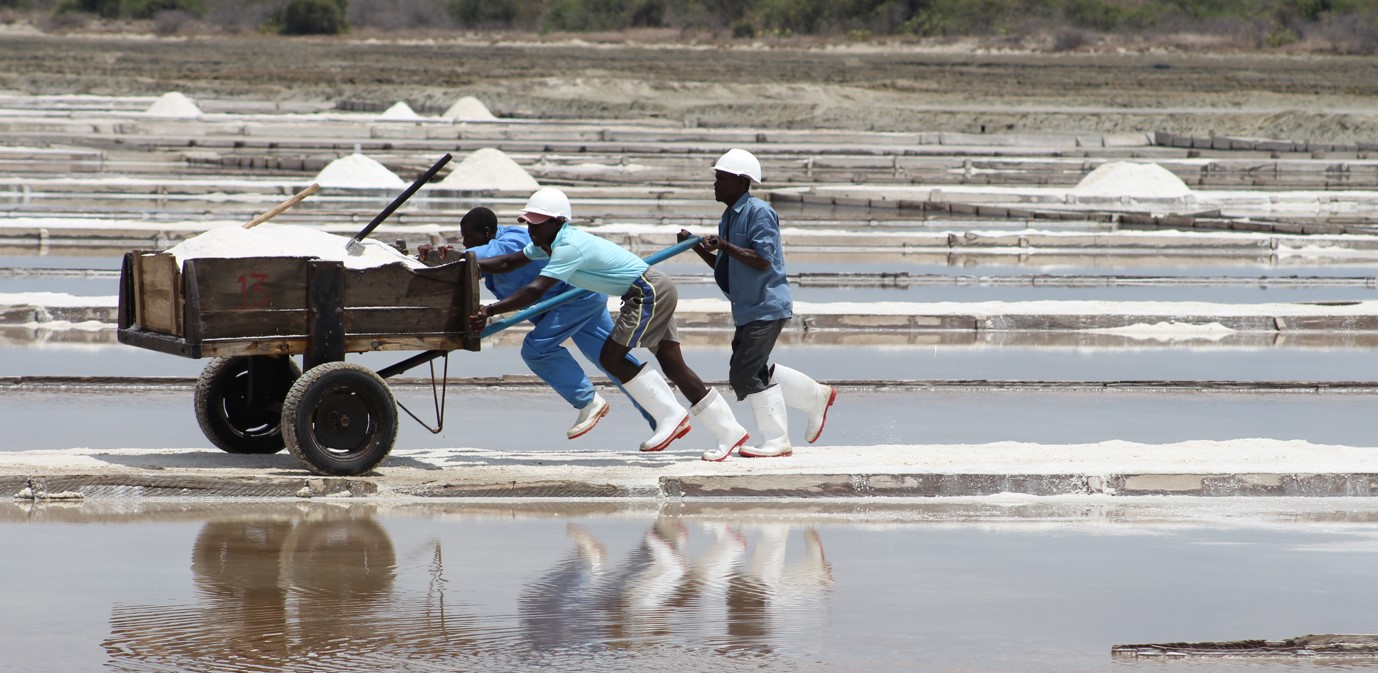| According to the 2019/2020 Household Budget Survey, the rate of chronic malnutrition among children aged 0 to 5 years is about 38%. In addition to chronic malnutrition, micronutrient deficiencies (the hidden hunger) represent a largely invisible but devastating form of malnutrition that is particularly prevalent in Mozambique.
The Government of Mozambique has recognized chronic malnutrition and micronutrient deficiencies as important problems, not only of public health but also of economic scope and has made a commitment to combat them through multisectoral policies aimed at increasing the availability and accessibility of safe and nutritious food, with special attention to industrial food fortification. It was through this commitment that the government created and approved the regulation of mandatory fortification of the following foods: salt (with iodine), sugar and edible oil (with vitamin A), and corn flour and wheat flour (with iron, folic acid, "B" complex vitamins, and zinc).
Since 2011, GAIN has worked in collaboration with the government, private sector, and civil society to ensure increased supply and demand of fortified foods, including iodized salt in Mozambique. In these 11 years of joint work, GAIN, through various actions such as meetings, capacity building, technical and financial assistance, development of studies and research, among others, has been able to achieve essential results to ensure, on the one hand, that the steps towards the establishment of a self-sufficient industry and with the appropriate knowledge needed, and on the other hand, an aware and demanding market, regarding the demand and consumption of fortified foods.
In the salt iodization sector, GAIN's interventions for the revitalization of this industry were based on three pillars:
- Access characterized by increasing the availability of iodized salt within the parameters defined by national standards in the market
- Demand aimed at ensuring increased consumer awareness, demand and regular consumption of iodized salt, and
- Enabling environment, through actions contributing to the creation of a favourable policy-regulatory and business environment for the salt industry.
With GAIN's support, the salt industry in Mozambique has revitalized and repositioned itself for an era of self-sufficiency and sustainability. After years of joint work and partnerships, GAIN has contributed to:
- Creating 2 regional associations of salt producers in the South and North (Salt Industry Association - AISAL and Association of Salt Producers and Traders - APROCOSAL).
- To rehabilitate 2 national laboratories, providing them with new equipment (spectrophotometer, water distillers, analytical balance, muffle furnace, Icheck flasks) and reagents, in order to increase the capacity of national hygiene, water and food laboratories
- Support technically, human and financially the Association for the Study and Defense of the Consumer - ProConsumers, increasing its capacity to intervene in the market for fortified products
- Create and implement an effective tool for monitoring fortified foods, called FortifyMIS to be delivered to the government
- Create a revolving fund for the importation of potassium iodate, under the associations' management, to ensure sustainability and self-sufficiency in the process of iodization of micro and small producers.
Currently there are more than 400 salt producers along the coastline of 6 provinces of Mozambique (Maputo, Inhambane, Sofala, Zambezia, Nampula and Cabo Delgado), with an annual production between 143 and 163 thousand tons of salt, a smaller production volume compared to the volume produced in neighboring countries. It is important to mention that 80% of this production is covered by large and medium producers, however these represent only 12% of the total number of producers, the remaining 20% of production is covered by micro and small producers (88% of total national salt producers).
These data show that the work is not finished. These companies need to be monitored to ensure that they continue to produce and offer iodized salt, and the consumer needs to be continuously informed about the importance of always demanding and consuming iodized salt.
|




